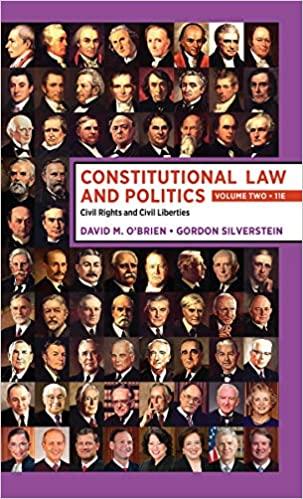Question
A Duty to Act to Protect Rights : Dunmore v. Ontario (Attorney General) [2001] 3 S.C.R. 1016 Ontario's Labour Relations Act did not allow farm
A Duty to Act to Protect Rights: Dunmore v. Ontario (Attorney General) [2001] 3 S.C.R. 1016
Ontario'sLabour Relations Actdid not allow farm workers to unionize or receive labour protections. Four farm workers and a Union challenged this exclusion as an infringement of their section 2(d) right of association, as well as their rights under s. 15. equality rights. The majority of the Supreme Court of Canada made the unique finding that the freedom to organize may require the government to extend legislative protection to vulnerable groups. Usually theCharterprotects rights when the government has acted in a way which violates an individual's rights. When a government has not taken any action (program, legislation etc), it usually cannot be said to have violated anyCharterrights. In this case, the court decided that because the farm workers were unable to exercise their collective freedom to assemble without the protection of labour rights, their freedom of association was violated. The government was required to act to protect these rights. This case acknowledges that theChartermay, in some cases, impose a government duty to act in order to protectCharterrights.
What is the legal significance of this case?
Is there any connections that can be made?
Step by Step Solution
There are 3 Steps involved in it
Step: 1

Get Instant Access to Expert-Tailored Solutions
See step-by-step solutions with expert insights and AI powered tools for academic success
Step: 2

Step: 3

Ace Your Homework with AI
Get the answers you need in no time with our AI-driven, step-by-step assistance
Get Started


